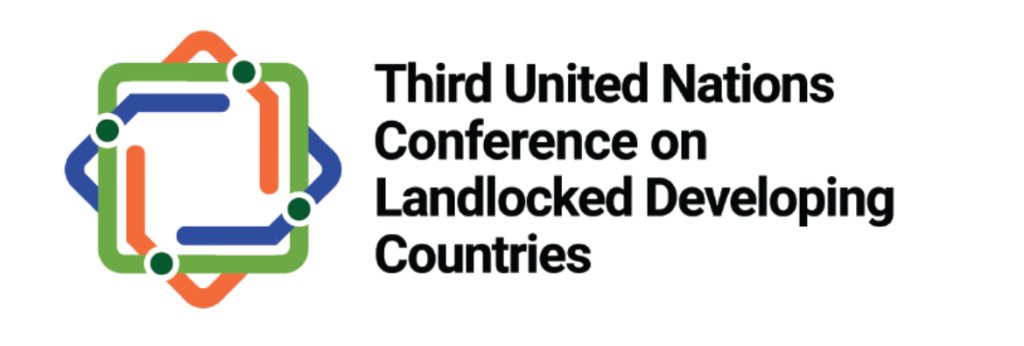
Closing Press Release
Third UN Conference on Landlocked Developing Countries (LLDC3) Concludes with Endorsement of Awaza Programme of Action and Adoption of Historic Awaza Political Declaration
Awaza, 8 August 2025 – The Third United Nations Conference on Landlocked Developing Countries (LLDC3) concluded today in Awaza, Turkmenistan, with the adoption of the Awaza Political Declaration, and the formal endorsement of the Awaza Programme of Action (2024–2034)—a landmark framework to accelerate sustainable development and resilience for the world’s 32 landlocked nations.
Under the theme “Driving Progress Through Partnerships,” the four-day conference convened Heads of State, Senior UN officials, development partners, and private sector leaders to address the unique challenges faced by LLDCs—including high trade costs, infrastructure gaps, and climate vulnerabilities—while charting a bold path forward through the Awaza Programme of Action (2024–2034).
Key Outcomes of LLDC3:
1. Endorsement of the Awaza Programme of Action and Adoption of the Awaza Political Declaration
The Awaza Political Declaration outlines a unified vision for enhancing transit connectivity, digital transformation, and climate resilience in LLDCs. Anchored in the Awaza Programme of Action, it focuses on five priority areas:
• Structural economic transformation
• Trade and regional integration
• Transport and infrastructure development
• Climate adaptation and disaster risk reduction
• Mobilizing financing and partnerships
2. Strengthened Global Solidarity
The Declaration calls for increased investment by multilateral development banks, deeper South-South cooperation, and stronger integration of LLDC needs in global trade and climate agendas.
The Declaration calls for increased investment by multilateral development banks, deeper South-South cooperation, and stronger integration of LLDC needs in global trade and climate agendas.
3. Commitment to Implementation and Accountability
The UN system, led by the Office of the High Representative for the Least Developed Countries, Landlocked Developing Countries, and Small Island Developing States (UN-OHRLLS), will coordinate implementation efforts, emphasizing country ownership, results-based monitoring, and accountability.
The UN system, led by the Office of the High Representative for the Least Developed Countries, Landlocked Developing Countries, and Small Island Developing States (UN-OHRLLS), will coordinate implementation efforts, emphasizing country ownership, results-based monitoring, and accountability.
“The Awaza Declaration marks a turning point. It is a blueprint for action, not just words. With targeted investments in infrastructure, trade facilitation, and climate resilience, we can unlock the potential of LLDCs and ensure no one is left behind,” said Ms. Rabab Fatima, Under-Secretary-General, High Representative for the Least Developed Countries, Landlocked Developing Countries, and Small Island Developing States (UN-OHRLLS) and Secretary-General of LLDC3.
“The UN stands ready to support this decade of delivery,” she added.
Turkmenistan’s Contributions to the LLDC3 Legacy:
As the host country, Turkmenistan played a pivotal role in advancing innovative and forward-looking initiatives aligned with the goals of LLDC3. These included:
-
Proposal for a Global Medicine of the Future – Solidarity and Cooperation, promoting international scientific collaboration in health and medical innovation.
-
The Global Atlas of Sustainable Transport Connectivity, launched at COP28 in Dubai, to support data-driven policymaking for transit development.
-
The Global Hydrogen Energy Transition Programme (2030–2040), positioning LLDCs as active participants in the global green energy shift.
-
A Global Circular Economy Transition Framework, encouraging resource efficiency and sustainable production and consumption models.
-
The Caspian Environmental Initiative, first proposed at UNGA78, addressing ecological and economic challenges affecting the Caspian Sea basin.
-
Strengthened support for the UN Aral Sea Basin Programme, backed by General Assembly resolutions, to tackle one of the world’s worst environmental disasters.
-
Advocacy for water conflict resolution through international law and multilateral diplomacy, leveraging the UN’s role in preventive diplomacy.
-
Promotion of the 2025 International Year of Peace and Trust, aligning with the 30th anniversary of Turkmenistan’s neutralityand the 80th anniversary of the United Nations.
“Turkmenistan is honored to have hosted LLDC3, a conference of critical importance for the future of landlocked nations”, said H.E. Gurbanguly Mälikgulyýewiç Berdimuhamedow, National Leader of the Turkmen People and Chairman of the People’s Council of Turkmenistan.
“The Awaza Declaration reflects our shared vision of partnership and progress. By working together—transit countries, development partners, and the private sector—we can overcome geographical constraints and build sustainable prosperity for our peoples,” he added.
Looking Ahead:
-
Annual LLDCs ministerial meetingsduring the UN General Assembly’s high-level week to review implementation.
-
The COP30 climate conference (Brazil, 2025) and UNCTAD XVI (Geneva, October 2025) will provide key opportunities to advance LLDC priorities.
-
The Second Global Mountain Summit (Kyrgyzstan, 2027) will address specific challenges of mountainous LLDCs as part of the Five-Year Action Plan for the Development of Mountain Regions.
-
Biennial regional reviews led by regional economic commissions.
-
Midterm review of the Awaza Programme of Action at the five-year mark.
Note to Editors:
###
About LLDC3
The Third United Nations Conference on Landlocked Developing Countries (LLDC3) is a once-in-a-decade opportunity to mobilize international support for the 32 LLDCs, whose geographic isolation hampers their growth. Hosted by Turkmenistan, LLDC3 will drive implementation of the Awaza Programme of Action and accelerate sustainable development through 2034.
Additional information:
-
Website: https://www.un.org/en/landlocked
-
Programme: https://www.un.org/en/landlocked/programme
-
Follow live (Official Programme): UN WebTV
-
Download our LLDC3 App: https://www.un.org/en/landlocked/lldc3-app
-
Important documents: https://www.un.org/en/landlocked/documents
Follow us on social media:
-
Hashtags: #LLDC3, #LockedOut, #ProgressThroughPartnerships
-
Facebook: UN-OHRLLS, United Nations, GlobalGoalsUN
-
X (formerly Twitter): @UNOHRLLS, @USGRabab_UN, @UN, @GlobalGoalsUN
-
Instagram: @unohrlls
-
LinkedIn: UN-OHRLLS
For media inquiries, contact:
-
May Yaacoub | LLDC3 Spokesperson, Head of Advocacy, UNOHRLLS | yaacoubm@un.org
-
Sithembile Siziba | Information officer, UNOHRLLS | Sithembile.siziba@un.org
-
Alexandra del Castello | Information Officer, UN Department of Global Communications | alexandra.delcastello@un.org
